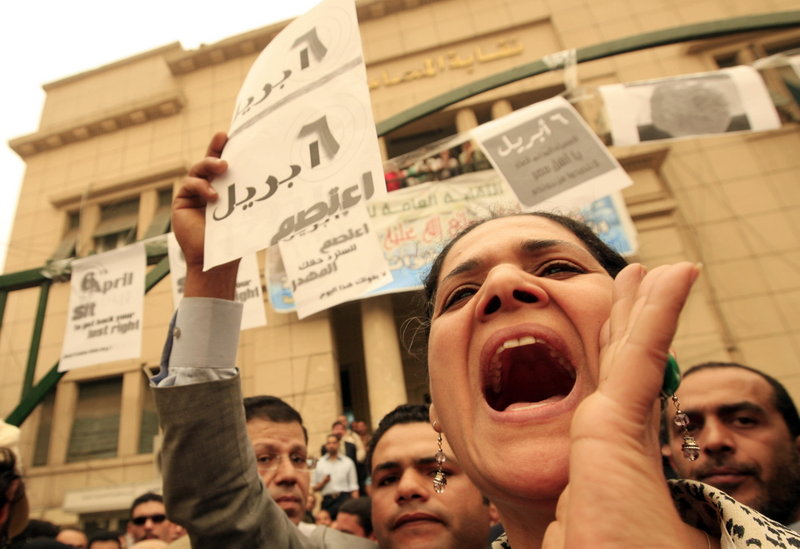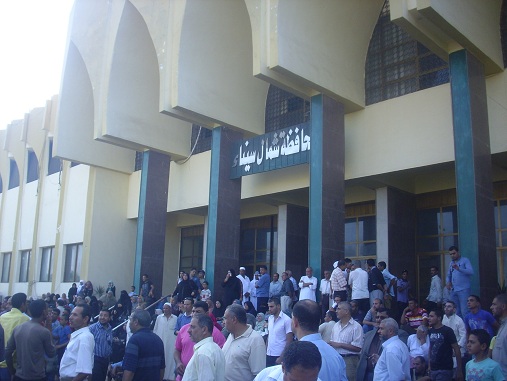Eight years have passed since the launch of the 6 April Youth Movement. In the short time since it emerged, the movement has faced a series of difficulties and assents in the political turbulence that has engulfed Egypt.
The movement commenced in 2008 as an independent group that used mobilisation as a means to protest the Hosni Mubarak regime. Their symbolic act of stepping on Mubarak’s poster in their 2008 protests was considered a turning point for political activism in Egypt and a precursor to 25 January Revolution.
Despite the Mubarak regime’s fall and its apparent success, the 6 April Youth Movement’s activities have come under fire and its key figures are currently serving prison sentences.
The 6 April Youth Movement was banned in April 2014 by the Cairo Court for Urgent Matters. The group was charged with “espionage” and “destabilising Egypt’s image”. The court also ordered the confiscation of the group’s property and headquarters.
Key figures from the movement remain behind bars, notably Ahmed Maher, Ahmed Douma and Amr Ali, who were convicted of violating the Protest Law.
After several months of detention renewals, Ali was referred to trial in late January where the court announced that the case does not fall under its jurisdiction. Ali has been charged with incitement, according to his lawyer.
One of Ali’s defence lawyers, Sameh Samir, who works at the Egyptian Centre for Economic and Social Rights (ECESR), said the only confiscated items attributed to her client are flyers and personal business cards. “Those flyers were being used by other people in a march, who, when arrested, informed the police that Ali is involved.”
If convicted, Ali could be sentenced to five years in prison, according to Samir. However, the defence team is currently working to reduce the sentence ahead of the upcoming appeal session scheduled for 30 April.
The Revolutionary Socialist movement sent an open letter to the 6 April Youth Movement on Monday, which was the anniversary of the movement’s founding. The letter highlighted the importance of the movement’s role in unifying political and societal activism against oppression meted out by authorities.
“The 6 April 2008 events expanded from sectarian demands to include all forms of oppression, mainstream media control, and holding leaders accountable by the people,” read the letter.
To many observers, it comes as no surprise that the movement’s members are spending the anniversary in prison. Yet, the state has continued its move to exclude the group from the space of political discourse.
In 2011, 6 April was nominated for a Nobel peace prize for its contribution to the 25 January Revolution. The recognition did not alleviate the state’s pressures on the movement, which worsened following the ouster of the Muslim Brotherhood regime in 2013.
The state’s censure of the movement increased when it showed solidarity with the Muslim Brotherhood whose members were violent dispelled from sit-ins in August 2013.
The movement frequently has faced accusations from counter-revolutionary figures and supporters of the Mubarak regime who have alleged that the group has received training from abroad and has conspired with foreign countries to cause strife in Egypt.
The movement has persistently denied those claims.



